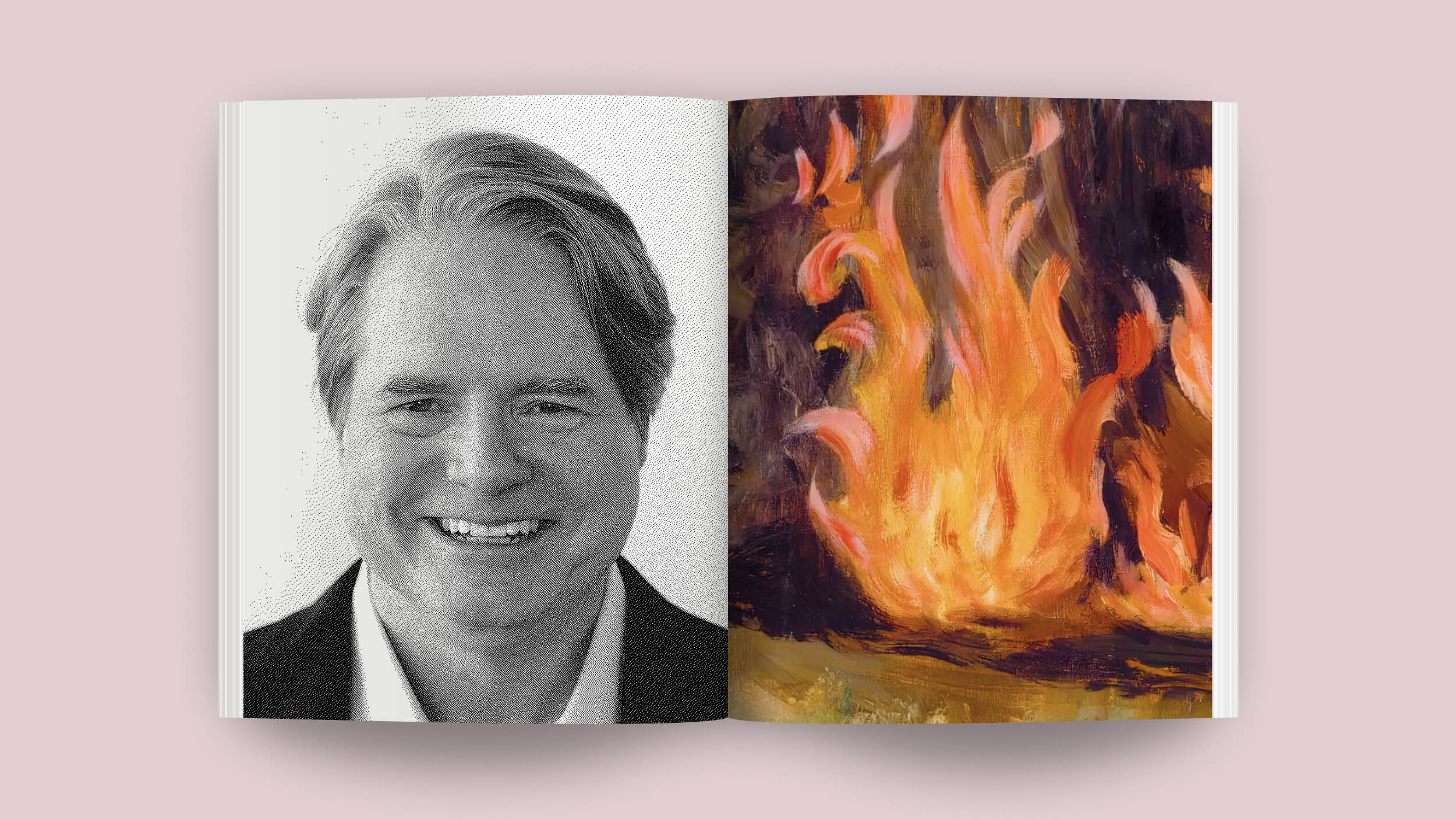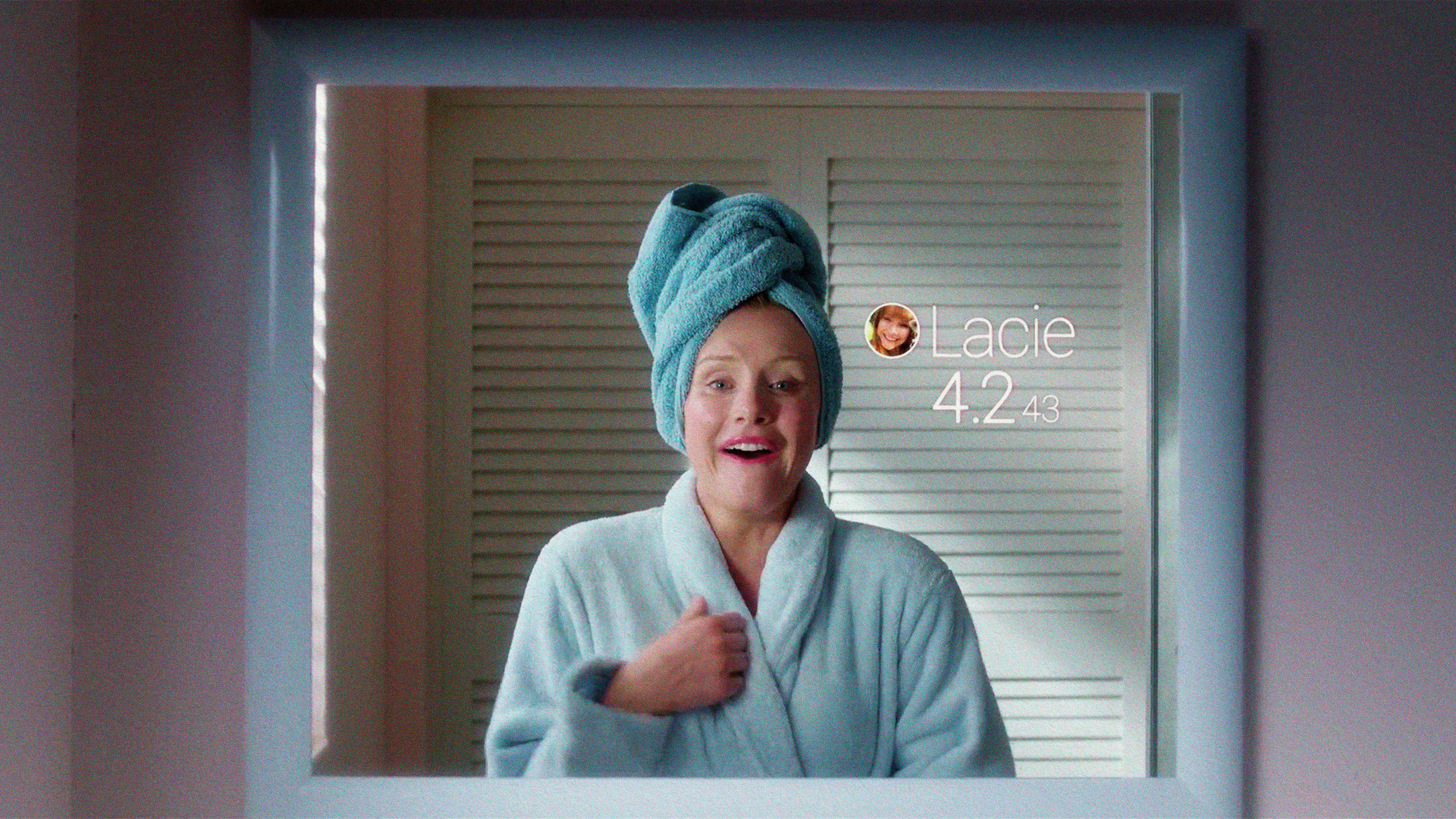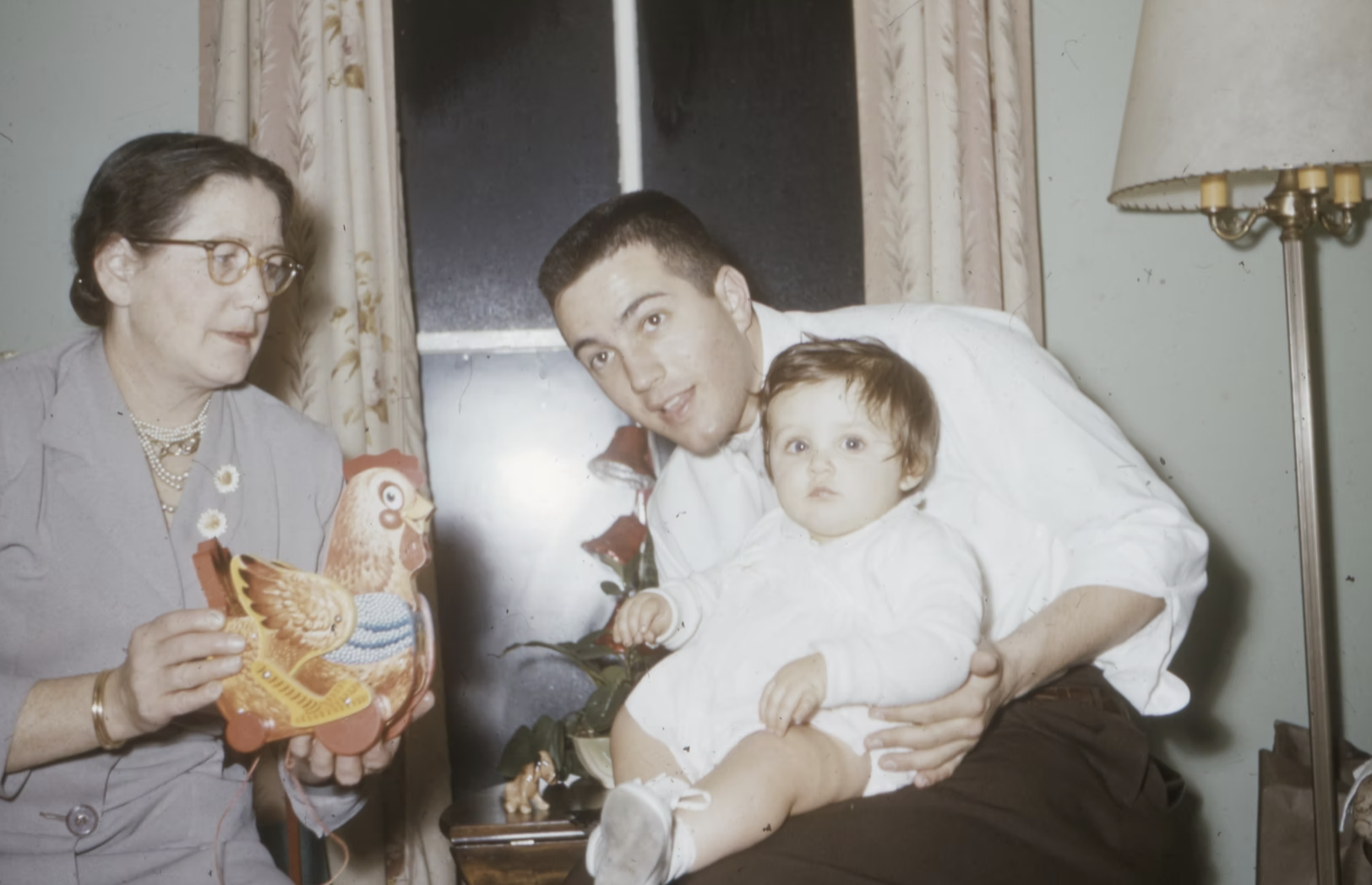ROBERT SAPOLSKY: When you look at some of the most appalling realms of our behavior, much of it has to do with the fact that social organisms are really, really hardwired to make a basic dichotomy about the social world, which is those organisms who count as us's and those who count as thems. And this is virtually universal among humans. And this is virtually universal among all sorts of social primates that have aspects of social structures built around separate social groupings, us's and thems. We turn the world into us's and thems and we don't like the thems very much and are often really awful to them. And the us's, we exaggerate how wonderful and how generous and how affiliative and how just like siblings they are to us. We divide the world into us and them. And one of the greatest ways of seeing just biologically how real this fault line is is there's this hormone oxytocin. Oxytocin is officially the coolest, grooviest hormone on Earth because what everybody knows is it enhances mother infant bonding, and it enhances pair bonding in couples. And it makes you more trusting and empathic and emotionally expressive and better at reading expressions, more charitable. And it's obvious that if you just spritz the oxytocin up everyone's noses on this planet, it would be the Garden of Eden the next day. Oxytocin promotes prosocial behavior, until people look closely. And it turns out, oxytocin does all those wondrous things only for people who you think of as an us, as an in-group member. It improves in-group favoritism, in-group parochialism. What does it do to individuals who you consider a them? It makes you crappier to them. More preemptively, aggressive, less cooperative in an economic game. What oxytocin does is enhance this us and them divide. So that along with other findings, the classic lines of us versus them along the lines of race, of sex, of age, of socioeconomic class, your brain processes these us-them differences on a scale of milliseconds. A 20th of a second, your brain is already responding differently to an us versus them.
So fabulous studies showing this, this double-edged quality to oxytocin. and this was a study done by a group in the Netherlands. And what they did was they took Dutch University student volunteers and they gave them classic philosophy problem, the runaway trolley problem, is it okay to sacrifice one person to save five? Runaway trolley. Can you push this big beefy guy onto the track who gets squashed by the trolley but that slows it down so that five people tied to the track... Standard problem in philosophy, utilitarianism, ends justifies means. All of that. So you give people the scenario and people have varying opinions. And now you give them the scenario where the person you push onto the track has a name. And either it's a standard name from Netherlands, Dirk. I think he was a Pieter, which, this is like a meat and potatoes Netherlandish name or a name from either of two groups that evoke lots of xenophobic hostility among people from the Netherlands. Someone with a typically German name. Oh yeah, World War II, that's right. That was a problem. Or someone with a typically Muslim name. So now they're choosing whether to save five by pushing Dirk onto the track or Otto or Mahmoud. And in general, give them those names and there's no difference in how people would rate it than if they were anonymous. Give people oxytocin, where they don't know that they've gotten it. Control group has just placebo spritz up their nose. Give people oxytocin and kumbaya, you are far less likely to push Dirk onto the track. And you are now far more likely to push good old Otto or good old Mahmoud onto the rails there. And you are more likely to sacrifice an out-group member to save five. And you are less likely to sacrifice an in-group member. All you've done there is exaggerate the us-them divide with that.
ALEXANDER TODOROV: There are many, many different inputs to impressions. One is emotional expressions. There's stereotypes about gender. There's cues about age and facial maturity. All of this go into our impressions. Another one that is very interesting is typicality. So as it turn out, we tend to like faces that are typical. That means faces that are closer to what we perceive as typical in our social environment. Now, there's an interesting wrinkle because typicality is also culturally specific, especially if the different cultures are linked to different ethnicities and there's distinctive physionomies. And that makes it worse. We've done a study where we created morphs of a typical Japanese face and a typical Israeli face. And then we can interpolate the morphs, so we can imagine like a typical Japanese face gradually turning into a typical Israeli face. Now, if you ask Israeli and Japanese participants to evaluate the faces, what happens is that as the face becomes more Israeli looking, the Israelis believe that the face is becoming more trustworthy. And the other way around for the Japanese. So in a sense to a large extent, what we perceive as typical is shaped by our natural environment. And it's something that we very rapidly extract. We are incredibly good learners about faces. And most likely, people who live in New York city, with a hugely diverse face, will have a different notion of typicality if you live in a small rural town where there's not so much diversity. In this case, this can lead to different kinds of sub-optimal outcomes because naturally we wouldn't trust people that do not look like us not having any other information.
DAN SHAPIRO: Once you attach to a tribe, something strange happens. No longer is content as important. The substance of the arguments, the policies. That is important. But at the end of the day, the most important element in terms of being a part of a tribe is loyalty. Loyalty to the tribe. And the most serious offense that you can commit against your own tribe is to betray that tribe's trust, its loyalty, its essence. It's to go against the tribe in some way. You look at the United States right now, there are these huge political divides. You see the democratic tribe or tribes. You see the Republican tribes as well. And it's very difficult for either side to even say, "I understand what you're saying." Because some on the inside of each side are gonna say, "Nope, they're betraying our tribe." And betraying a tribe, that's a taboo. If I break a taboo, I can suffer social punishment. I'm gonna be ex-communicated. I'm gonna be ridiculed or worse. But that's the challenge of our tribalistic world that we're in right now.
AMY CHUA: We don't wanna get to the point where we look at people on the other side and we see them not just as people that we disagree with, but literally as our enemy. Western democracies at their best or just any democracies are when people have cross-cutting group identities. So it's like, "Okay, I'm a Democrat or I'm a Republican, but I'm also Asian American or African-American or straight or gay, wealthy or not wealthy. I like Dickens. I like Jane Eyre." Just different ways of dividing yourself so that you don't get entrenched in just two terrible tribes. It's sort of like if I'm talking about sports, I'm with you, but if I'm talking about food preferences, I'm with you and you could have different groups that neutralize each other.
SAPOLSKY: Collectively, this is depressing as hell. Oh my God, we are hardwired to inevitably be awful to thems and thems along all sorts of disturbing lines of, "Oh, if only we could overcome these us and them dichotomies. Oh no, why are we hardwired to divide the world along the lines of race and ethnicity and nationality and all of those disturbing things?" And what becomes clear is when you look closely is it is virtually inevitable that we divide the world into us's and thems and don't like thems very much and don't treat them well. But we are incredibly easily manipulated as to who counts as an us and who counts as a them. And those fault lines that we view as, "Oh my God, how ancient can you get," that say somebody of another race evokes limbic responses in us, commensurate with they are a them. They motivate automatic responses. "Oh my God, is that just the basic fault line?" And then you do something like have faces of same race versus other race. And either they are or aren't wearing a baseball cap with your favorite team's logo on it. And you completely redefine who's an us. Us is people who like the Yankees and them are Red Sox fans. And suddenly, you're processing within milliseconds what damn baseball cap they have and race is being completely ignored. "Oh my God, we are inevitably hardwired to make really distressing us-them." We're manipulated within seconds as to who counts as an us, as a them. Good news with that, we can manipulate us out of some of our worst us-them dichotomies and re-categorize people. Bad news, we could be manipulated by all sorts of ideologues out there as to deciding that people who seem just like us really aren't and they're really so different that they count as a them.
BEAU LOTTO: Well, your brain evolved to evolve — is adapted to adapt. So a deep question is how is it possible to ever see differently if everything you see is a reflex grounded in your history of assumptions? Our assumptions and the process of vision is both our constraint and our savior at the same time. Because our brain evolved to take what is meaningless and make it meaningful. If you're not sure that was a predator, it was too late. So your brain evolved to take this meaningless data and make meaning from it. And that's the process of creating perception. And then we hold on to those assumptions. They create attractor states in your brain. And they become very stable. So how could we see differently? It's by engaging the process of creating perception. Well, the first step in that is to not just admit, but embody the fact that everything you do right now is grounded in your assumptions. Not sometimes, but all the time. Because if you don't accept that, then you'll never create the possibility of seeing differently. So much of deviate, if people walk away with anything, it's knowing the process of perception, in some sense, I want them to know less at the end than they think they know now. Because nothing interesting begins with knowing, it begins with not knowing. Because the next step is to then identify your assumptions. Because most of everything that we do, we don't know why we do what we do. And then the final step is to question those assumptions. But questioning assumptions is incredibly difficult. Because to question assumptions, to doubt what you assume to be true already, especially if that assumption defines who you are, is to do the one thing that our brain evolved to avoid, which is uncertainty.
TODOROV: The reason why we will never be able to get rid of first impressions is because they serve important psychological functions. That is in the absence of any other information, we are trying the best we could to figure out what the other people are thinking. That doesn't mean that we wouldn't change our minds. On the contrary, when you have a good diagnostic evidence about the person or when you know about past behavior, that would change your inferences based on appearance. But most of the time, if you don't have any other information, people will act on this. And that may not be in their best interest. Starting back with Cesare Lombroso, who wrote books like the "Criminal Man" and the "Criminal Woman," and he claimed that he can identify this inferior types based on their facial features. To Francis Galton, who invented the composite photography. And in fact, all of the today's morphing methods are based on this method of composite photography. And the first application of the method was to identify the criminal type. So it has a very long history. I think a very reasonable argument could be that we are kind of hardwired to figure out the intentions of other people, of the people around us. Because what is the most important thing in our social life. It's other people. And in interactions with strangers, you're always trying to figure out what are their intentions? Are they good? Are they bad? What are they going to do? Can they hurt me? Whether that's physical or in a non-physical way. So these are the things that have always been a concern for us. But let's think in terms of evolutionary history. Well, for most of our evolutionary history, we basically lived in extended families, typically between five to eight individuals. All of these changes in the last 50,000, in fact, even less, maybe in the last 20,000 years, when you have large societies. If you imagine the human evolution compressed within 24 hours, we have been living with strangers, surrounded by strangers in the last five minutes. So it's not obvious at all that we are kind of in doubt of reading the characters of other faces. I think there's very good evidence, there's good comparative evidence that in fact, we are very good at picking up on social cues in the immediate situations. So if you look, for example, at comparative studies, you look across all primates. It turns out that we are the only primate which has whites of the eyes. That is, our iris is dark. Then you have the white sclera. And then have a darker skin. There are no other primates with this kinds of coloration. So why is that interesting or important? Well, the fact that you have the white of the sclera makes it super easy to detect eye gaze. An eye gaze is very important for sharing social attention. We can communicate from a long distance. Similar emotional expressions are very important. The fact that we have kind of the naked ape and the fact that our faces are not completely covered by hair, makes it very easy to detect changes in skin colorations, which is often an indication of different kinds of emotional or mental states.
So we are very sensitive to changes, momentary changes in what we are observing. Because this momentary change is indicative of what is important in the situation? What is happening right now? But it is hard to make the argument that somehow we are in doubt also to read into the faces the character furthers. I think we have the natural propensity trying to figure out what this other people are thinking or feeling right now. But that doesn't mean, and I think the problem with physionomy and the modern version is this assumption that because you can make this rapid influences, they're also informative.






